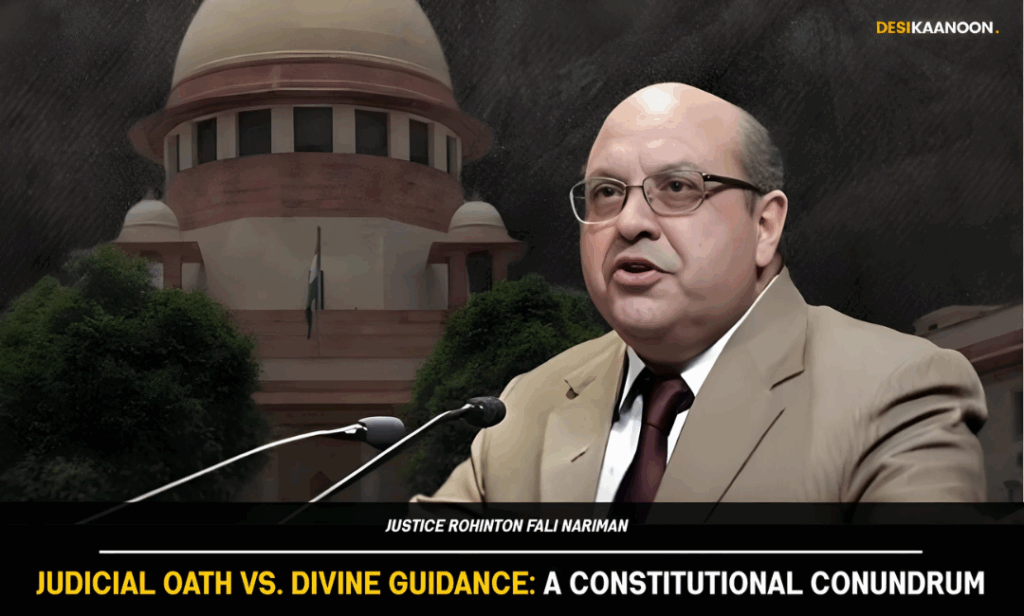Akhya Pandey
On 17th September 2025, in a powerful critique of judicial conduct, former Supreme Court Justice Rohinton Fali Nariman has asserted that any judge who attributes their judgments to “divine or bovine intervention” is in direct violation of their oath to the Constitution. The remarks, made during the K.M. Bashir Memorial Lecture in Thiruvananthapuram, have reignited a critical debate within the Indian legal fraternity about the intersection of personal faith and judicial impartiality.
Justice Nariman’s comments are widely interpreted as a direct response to a statement by former Chief Justice of India D.Y. Chandrachud, who had publicly disclosed that he had prayed for a solution while adjudicating the sensitive Ayodhya-Babri Masjid dispute. This admission, made in 2023, had previously drawn criticism from legal experts, including Senior Advocate Indira Jaising, who deemed it “anti-constitutional.”
Underscoring the sanctity of the judicial oath, Justice Nariman stated unequivocally, “You (judges) have to live only by your oath to the Constitution and the laws. And when you live by your oath to the Constitution and the laws, you certainly bring in your own morality. That’s about as far as it goes.” His argument posits that while a judge’s personal morality and perspective are part of their human makeup, reliance on any form of external “intervention” as a basis for a judicial decision is an impermissible departure from their core mandate. The Third Schedule of the Constitution mandates an oath to “bear true faith and allegiance to the Constitution of India” and to perform duties “without fear or favor, affection or ill-will.” Justice Nariman’s formulation suggests that invoking divine guidance undermines the perceived objectivity and secular foundation of the judiciary.
His lecture, titled “Fraternity in a Secular State: The Protection of Cultural Rights and Duties,” also emphasized the foundational role of secularism in achieving fraternity a cardinal value enshrined in the Indian Constitution. He challenged the common misconception that secularism was only introduced by the 42nd Amendment, noting its existence as an inherent principle throughout the constitutional framework from the very beginning. Justice Nariman stressed that a nation’s harmony and progress are inextricably linked to its commitment to secular ideals, arguing that “You cannot have fraternity in a theocratic state.”
The remarks have placed the delicate boundary between a judge’s private belief and their public duty at the forefront of legal discourse, compelling the legal community to reflect on the core principles that govern judicial conduct and maintain the judiciary’s secular character.
Instagram: Click Here.
LinkedIn: Click Here.
For Collaboration and Business: Click Here.

